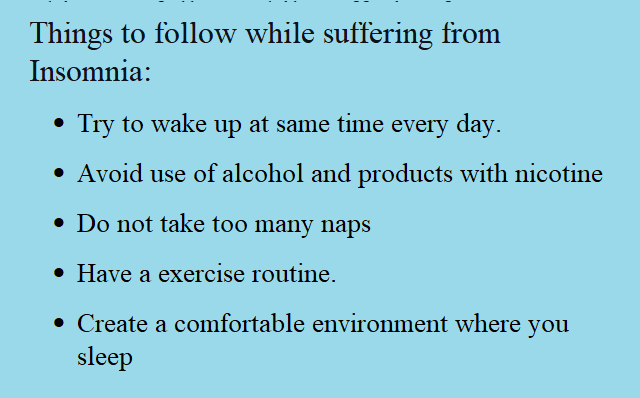
Best Sleeping Tips for Aging Adults with Insomnia
Aging can affect your sleep quality. You may have a more consistent sleep pattern when you are younger. Here are several steps that can help you overcome the sleeping issues as you age.
With the older age, you may find yourself waking up too often in the night. And you may start thinking, “is it normal, or is something wrong with me?”
There is nothing alarming in it. One of the most common sleep changes that come with aging is waking up more frequently at night. The most likely cause for this could be physical discomforts, such as the urge to use the bathroom or an achy joint.
Thankfully, older adults can fall back asleep just as quickly as younger people. Additionally, most age-related changes in the sleep patterns occur before the age of 60 and do not increase much after that.
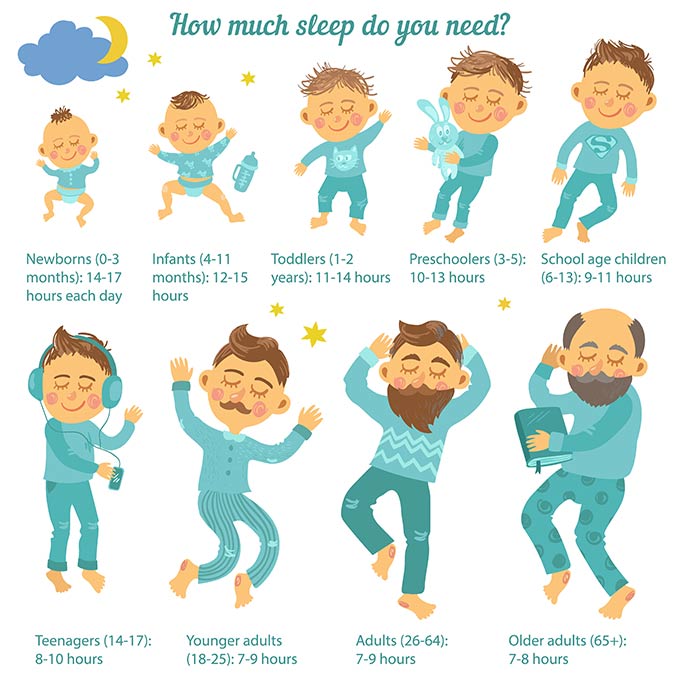
Other changes as a part of a regular aging routine include getting less overall sleep and spending less time in the REM (rapid eye movement) cycle, the dream phase of sleep. These changes may vary a little from person to person and generally affect men more than women.
Getting older does not mean that you will have a restless sleep for the rest of your life. Sometimes you cannot change the way your natural sleep tendencies and rhythms shift but can try many useful yet straightforward techniques to limit disruptors and improve your sleep quality.
Try the following approaches to improve your sleep while aging:
- Make a doctor review your medications and supplements
- Do not drink fluids within two hours of bedtime to reduce bathroom trips
- Talk to a doctor and try over the counter pain killers if the pain keeps you awake at night
- Keep your sleep environment comfortable and dark
- Avoid caffeine intake in the eight hours before bedtime
- Do not drink alcohol near bedtime
- Maintain a quality sleep cycle by limiting daytime napping to just 10 to 20 minutes
- If daytime naps make you less sleepy at night, avoid taking naps
You should aim for seven to eight hours of sleep each night. If you have poor sleep quality even after taking these steps, or you feel tired or sleepy on most days, consult a health care expert.
Experiments
Try these natural experiments to help induce better sleep quality:
- Avoid any kind of beverages, including alcohol, at least two hours before you plan to sleep to reduce trips to the bathroom
- Take a short afternoon nap of about 10 to 20 minutes if your schedule allows that to see if you feel fresher and more rested overall
- Ease pain and aches that disrupt your sleep by exercising each morning or taking over the counter pain killers for more severe pain
Tips
Here are five tips to fight insomnia and improve sleep while aging:
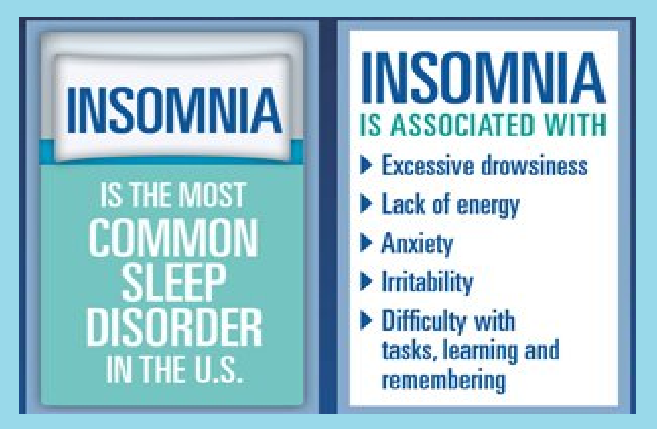
Tip 1: Understanding changes in your sleep patterns
Your body produces lower levels of growth hormones as you age, so you are most likely to experience a reduction in slow-wave or deep sleep, a refreshing part of the sleep cycle. It happens to you because your body produces less melatonin, meaning that you will experience more frequent fragmented sleep and wake up more often during the night.
However, at any age, it is common to experience occasional sleep problems. If you experience any of the following symptoms regularly, you may be dealing with a sleep disorder:
- Trouble falling asleep even when tired
- Difficulty getting back to sleep after waking up
- Not feeling refreshed after a night’s sleep
- Feeling sleepy or irritable during the day
- Difficulty staying awake while sitting still, driving, or watching television
- Difficulty concentrating during the day
- Relying on alcohol or sleeping pills to fall asleep
- Trouble controlling emotions
Tip 2: Identifying underlying problems
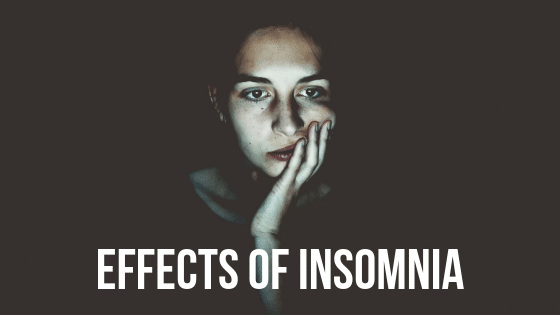
Many cases of sleep difficulties or insomnia are due to underlying but treatable causes. By identifying the underlying cause, you can tailor your treatment accordingly.
- Do you have a lot of stress?
- Are you depressed? Do you feel hopeless or emotionally flat?
- Do you struggle with worry or chronic anxiety?
- Have you recently had a traumatic experience?
- Are you taking medicines that are affecting your sleep?
- Do you have any health issues that may interfere with your sleep?
There can be numerous causes of insomnia and sleep problems in older adults:
- Poor sleep environment or sleeping habits
- Medical or pain conditions
- Menopause or post-menopause
- Medications
- Lack of exercise
- Stress
- Lack of social engagement
- Lack of sunlight
- Sleep disorder
Tip 3: Improving sleep habits
In most cases, people can improve their sleep by addressing their emotional issues, choosing healthier daytime habits, and improving your sleep environment. It may take some experimental changes to know what works best for you to improve your sleep because everyone is different, and their bodies react differently to the same change.
To encourage better sleep at night, you need to:
- Naturally, boost your melatonin levels
- Avoid reading from a backlit device
- Make a calm, quiet, and dark bedroom
- Avoid bedtime activities
- Move bedroom clocks out of view
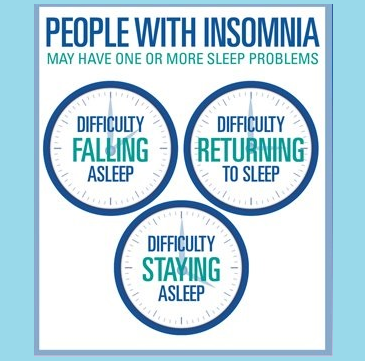
Keep a routine for bedtime by:
- Maintaining a consistent sleep schedule
- Blocking out snoring
- Going early to bed
- Developing soothing bedtime rituals
- Limiting sleep aids or medications
- Combining sex and sleep
Tip 4: Using diet and exercise for improving sleep
Two daytime habits that affect your sleep are diet and exercise. Some diet tips to improve your sleep include:
- Limit caffeine intake
- Avoid alcohol before going to bed
- Have a light meal before bedtime
- Cut down on sugary foods
- Avoid spicy or heavy meals at night
- Minimize liquid intake at night
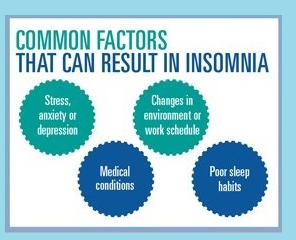
Exercise, especially aerobics, releases chemicals that promote more restful sleep. Even for people who have mobility issues, countless activities can prepare you for a good night’s sleep. You can try water exercises such as swimming, dancing, golfing, running or cycling, lawn bowling, or bocce.
Tip 5: Reducing mental stress
Anxiety or stress built up during the day can interfere with sleep at night. It is essential to let go of all thoughts and worries at the time of rest. Some tips to relieve stress include:
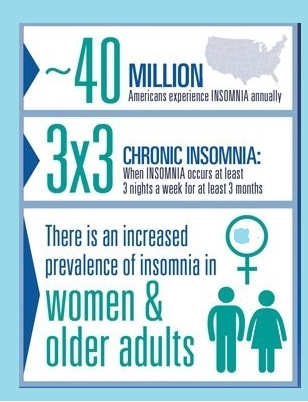
- Keep a journal to record your stress and worries
- Listen to calming music
- Text a friend or partner
- Read a book that makes you feel relaxed
- Use relaxation techniques
- Talk to a friend or loved one about what’s stressing you
Getting back to sleep at night after waking up is as important as falling asleep. Following tips may help if you have trouble falling back asleep:
- Don’t stress or worry
- Make relaxation goals
- Do non-stimulating activities
- Postpone worrying
